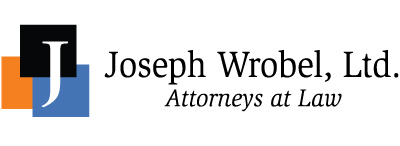Navigating Financial Challenges in a Post-COVID World: Insights into Auto Loan Defaults and the Housing Market
In the wake of the COVID-19 pandemic, the world has witnessed an unprecedented impact on personal finances. Families have faced challenges still echoing through their lives, leaving many grappling with bankruptcy. This blog article will explore the interplay between the housing market and the rising tide of auto loan missed payments and defaults. We will provide essential insights, actionable advice, and strategies to help you manage these financial challenges.
Fox Business: Americans falling behind on auto loan payments at record pace
New York Post: Credit card and car loan defaults hit 10-year high as inflation squeezes families
When facing the daunting prospect of bankruptcy amid the ongoing financial challenges in a post-COVID world, you need a guiding hand to navigate the complex legal landscape. Chicago Bankruptcy Attorney Joseph Wrobel is your trusted partner in regaining control of your financial future. With extensive experience and a deep understanding of the intricacies of bankruptcy law, Joseph Wrobel is dedicated to providing you with expert counsel and personalized solutions. Whether dealing with housing market struggles, auto loan defaults, or any other financial challenges, Joseph Wrobel can help you explore the best path forward. His expertise and commitment to your financial well-being make him the go-to advocate for individuals seeking a fresh start. Don’t face bankruptcy alone; let Joseph Wrobel guide you toward a brighter financial future.
Learn About Chapter 7 Bankruptcy
Learn About Chapter 13 Bankruptcy
Listen to Our Chicago Bankruptcy Podcasts

The Post-COVID Financial Landscape
The COVID-19 pandemic has left an indelible mark on the global economy. As businesses shuttered and unemployment surged, millions of households faced financial hardship. While government stimulus packages provided temporary relief, the lingering impacts of the pandemic continue to be felt. Families are still working to regain their financial footing, with many considering bankruptcy as a last resort.
The Housing Market’s Struggle
The housing market, a cornerstone of the American dream, has been experiencing its share of turbulence in the post-COVID world. Here are a few key factors contributing to its struggles:
- Supply Chain Disruptions
The pandemic disrupted supply chains worldwide, affecting the availability and cost of building materials. This has led to increased housing construction costs and home prices. Many potential buyers are finding it challenging to afford a new home.
- Foreclosure Moratoriums
In response to the financial crisis triggered by the pandemic, many governments implemented foreclosure moratoriums to protect homeowners. While these measures were necessary to prevent a housing crisis, they have sometimes delayed the inevitable for homeowners who were already struggling.
- Rising Interest Rates
Mortgage interest rates have been slowly rising, making it more expensive for new homebuyers to secure loans. This can deter potential buyers and further strain an already fragile housing market.
- Eviction and Rental Market Woes
The housing market is not limited to homeowners; renters have faced their own set of challenges. Eviction moratoriums, intended to protect tenants during the pandemic, have created financial difficulties for landlords, leading to increased uncertainty in the rental market.
The Auto Loan Default Dilemma
While the housing market grapples with these challenges, auto loan defaults and missed payments are also rising. Here’s why:
- Economic Uncertainty
The ongoing economic uncertainty has left many households hesitant to make significant financial commitments, including auto loans. Families are reconsidering their budgets, leading to missed payments and defaults.
- Remote Work and Reduced Commutes
The remote work revolution has prompted some individuals to reevaluate their need for personal vehicles, especially in urban areas with robust public transportation. Reduced commuting has led to decreased auto usage, impacting the perceived value of vehicle ownership.
- Job Insecurity
Job security remains a concern for many in a post-COVID world. With layoffs still looming, individuals are wary of taking on additional debt, such as auto loans.
- Deferred Payments
Some lenders offered payment deferral options to assist borrowers during the pandemic’s peak. While these were helpful at the time, they have created a backlog of payments that are now coming due, contributing to the increase in missed payments and defaults.

The Interplay Between Housing and Auto Loans
Understanding the interconnectedness of these challenges is crucial to finding solutions. Here are some key points to consider:
- Shared Financial Stress
The housing market and auto loans share the common thread of financial stress experienced by many households. As these stresses compound, it becomes increasingly important to prioritize financial well-being.
- Prioritizing Essential Expenses
In times of economic uncertainty, it’s vital to prioritize essential expenses. This means keeping a roof over your head and reliable transportation, which are often non-negotiable. Making timely mortgage, rent, and auto loan payments should be a top priority.
Strategies to Navigate the Challenges
With these challenges in mind, let’s explore some strategies to help you navigate the post-COVID financial landscape effectively:
- Budgeting and Financial Planning
Creating a comprehensive budget and financial plan is the first step in regaining control of your finances. Identify your essential expenses, including housing and transportation, and allocate funds accordingly. This will help you avoid missed payments and defaults on your mortgage, rent, and auto loan.
- Communication with Lenders
If you’re facing difficulties making mortgage or auto loan payments, don’t hesitate to communicate with your lenders. Many lenders offer assistance programs and temporary relief options. They may be willing to work with you to restructure your payments, offer forbearance, or create more manageable terms.
- Seek Professional Financial Advice
Consider seeking advice from financial advisors or credit counselors who specialize in helping individuals navigate financial challenges. They can offer personalized guidance, helping you make informed housing and auto loan payment decisions.
- Explore Refinancing Options
For homeowners, exploring mortgage refinancing options can be beneficial, especially if you can secure a lower interest rate or better loan terms. This can help reduce your monthly housing expenses.
- Evaluate Auto Loan Refinancing
If you have an auto loan and are struggling with payments, explore the possibility of auto loan refinancing. Refinancing can lead to lower monthly payments, making it more manageable to keep up with your financial obligations.
- Emergency Fund and Savings
Building an emergency fund is a fundamental financial strategy. Having savings set aside can help you weather unexpected financial storms, such as job loss or medical emergencies. This can be a lifeline for both your housing and auto loan payments.
- Explore Government Assistance Programs
Research government assistance programs that might be available to you, especially if you risk losing your home or vehicle. These programs can provide temporary relief and help bridge the gap during difficult times.

In the ever-evolving landscape of post-COVID financial challenges, the interplay between housing struggles and auto loan defaults is a significant concern for many families. To avoid the specter of bankruptcy, adopting a proactive and informed approach to your finances is essential.
You can take control of your financial situation by budgeting, communicating with lenders, seeking professional advice, and exploring refinancing options. Remember that prioritizing essential expenses, such as housing and reliable transportation, is crucial for maintaining stability.
As we continue to navigate these challenging times, it’s important to remember that you’re not alone. Reach out for help when needed, and explore the available resources. With determination and the right strategies, you can overcome these financial challenges and build a secure future for you and your family.
Whether you’re battling housing market struggles, auto loan defaults, or considering bankruptcy, hope and solutions exist. Contact professionals like Chicago Bankruptcy Attorney Joseph Wrobel to guide you through these turbulent times. Your journey to financial stability begins with the first step. Don’t hesitate—take control of your financial future today. Contact us now, and let’s work together to pave the way for a brighter and more secure tomorrow. Your financial well-being is our top priority, and we’re here to help you every step of the way.

 Subscribe to CB on YouTube!
Subscribe to CB on YouTube!